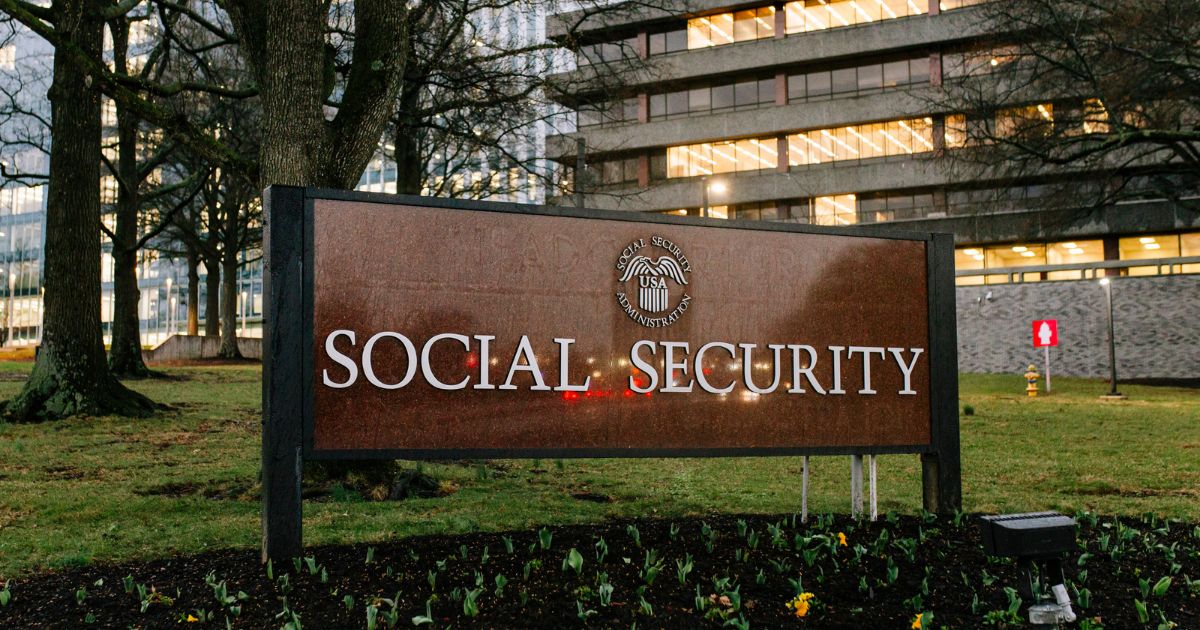Even His Admin Admits ‘Bidenflation’ Is Bankrupting Social Security
Last month, the White House stated that “the Administration is committed to protecting and strengthening Social Security” in its budget. However, the recent annual report from the program’s trustees, approved by all members appointed by President Biden, tells a different story.
The report shows how slow economic growth and high inflation during the Biden presidency have weakened Social Security’s foundation and hastened its insolvency. The report is evidence of the failure of Biden’s economic policies and how they will harm seniors.
Slower growth in the future
The annual report, compiled by the Social Security actuary and approved by the program’s trustees, shows that the retirement trust fund will become insolvent in 2033, one year earlier than previously estimated. The reason for this conclusion is a decrease in estimates for prospective GDP and productivity growth by about three percent by 2026 and for all subsequent years.
The trustees made this move “in response to recent economic developments, including higher-than-expected inflation rates and lower-than-expected output growth.” Members of the Biden administration have admitted that the economy has moved into a lower gear permanently under his leadership.
High inflation and slow economic growth lead to negative real wages, which decreased by 3.43 percent in 2022. This trend puts significant pressure on the Social Security program since its annual cost-of-living adjustment (COLA) increases are linked to the increase in consumer prices. A wage base that grows more slowly than inflation means that Social Security spending will grow faster than the payroll taxes that fund the program.
Carter-era stagflation could return
In the spring of 1983, Congress and the Reagan administration agreed on a package of reforms that extended Social Security’s solvency. It is well known that the 1983 changes came just six years after Congress passed laws that aimed to secure Social Security for at least a quarter-century.
The stagflation during the Jimmy Carter presidency destroyed the effect of the 1977 Social Security modifications. Four years of negative real wages, coupled with increased unemployment when former Federal Reserve Chairman Paul Volcker crashed the economy to fight inflation, sparked a crisis in solvency in the early 1980s. The 1983 legislation authorized a “stabilizer” provision in case Social Security trust fund balances ran out, limiting the annual COLA to the lesser of wage or price increases.
The scenario that occurred in the early 1980s, when stagnant growth and high prices threatened Social Security, could repeat itself if fiscal and monetary policy do not control inflation. The program’s actuarial projects a small increase in inflation-adjusted wages this year, followed by stronger wage growth in 2024 and beyond. However, the most recent Bureau of Labor Statistics data shows negative real weekly earnings in February and for eight of the previous 12 months. If this trend persists, trustees’ predicted insolvency could come far earlier.
Déjà vu?
In 1975, then-Senator Biden introduced legislation that would sunset all federal programs, including Social Security and Medicare, within four years. If a few more years of slow growth and high inflation endanger Social Security’s solvency, Biden might realize his long-lost desire.
" Conservative News Daily does not always share or support the views and opinions expressed here; they are just those of the writer."





Now loading...